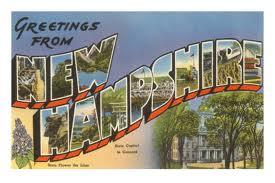
Today's job market holds a wealth of opportunities for career seekers pursuing Animation and Video Game Design. Thanks to the Internet, even residents of remotely situated regions like Northern New Hampshire gain access to jobs in this profession. Still, numerous “brick and mortar” businesses in New Hampshire hire Animators and Video Game Designers, and southern New Hampshire is an easy commute to many more jobs in Boston.
New Hampshire Schools and Training Programs for Video Game Design
Numerous reformed video game addicts are now Communications majors with special focus on Digital Media. Others major in Programming with emphasis on Animation. Some major in Math with a minor in Game Theory.
State residents who wish to study Video Game Design can attend Hesser College in Manchester. Commutable out-of-state options include the University of Massachusetts at Lowell and Fitchburg State. Other professional training and degree options are available online.
Working as a Video Game Designer in New Hampshire
With imagination and perseverance, Animators and Video Game Designers can earn top pay doing what they like to do. According to a 2010 statistic, the average income for an Animator or Video Game Designer in the United States ranges from about $35,000 to more than $200,000 per year. Unfortunately, these statistical results are vague, not to mention inaccurate, as they do not account for the salaries of many million self-employed Americans. Generally, the pay scale for these positions varies depending on experience, effort, talent, ability, performance, productivity, networking and geographic location, among other factors.
New Hampshire businesses that hire Video Game Designers include software publishers, mobile phone service providers, colleges, universities, graphic design firms and animation studios. Some designers work for local ad agencies like Thermo Fisher Scientific in Hampton, Franchise Solutions in Portsmouth or Gallery Marketing Communications in Salem. Other designers work for state-based motion picture producers like Northern Pictures and Florentine Films.
Newcomers are often surprised to learn that Video Game Design is not about playing video games. Businesses invest time, effort and especially money in employing design talent from an increasingly large pool of applicants. Most companies require a degree and some related experience even for entry level positions, although there are exceptions to the rule. Cool bosses with open minds will hire gifted, dedicated, highly motivated beginners.
Self-starters with an entrepreneurial spirit don't have to work for a firm, thanks to about a billion (who's counting?) private businesses and websites featuring (or wanting to feature) their own interactive animation. Video Game Designers sometimes seek freelance positions so they can set their own schedules and work from home. Some designers contract with corporations and private businesses. Some invent and sell their own games. Some build game-related websites.
Recommended Skills for Video Game Designers
The average workday of a typical Video Game Designer involves dreaming up ideas for new video games, creating rules, devising a scoring system and enhancing the gaming experience with audio-visual special effects and various fun challenges. These might include puzzles, pop trivia quizzes, tricks, traps, obstacle courses and other surprising twists. Video games are often programmed with a set time limit and ever-increasing levels of difficulty.
The designer also creates the artwork (and/or consults with professional Animators) to capture the motion and visual style that best fits the features of the game. Once the prototype is manufactured, the designer play-tests the game and does feedback analysis to get some idea of the game's potential for commercial success.
Animators and Video Game Designers are known to dabble in Math, Computer Science, Fine Arts, Digital Graphics, Communications, Business, Marketing, Promotion, Game Theory, Character Development and all kinds of other useful topics. Armed with this knowledge, they create realistic, action-packed interactive products which they hope will strike a Universal chord among gamers. The pot of gold at the end of the rainbow is mass market appeal.

